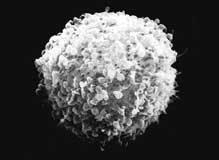Cornering the HIV
 researchers have managed to prepare a mighty arsenal of drugs to combat aids as the global war against the disease nears its third decade. Studies have led to the development of potent cocktails of anti- hiv drugs that unleash a powerful counter attack, pounding down billions of virus particles to virtually undetectable levels in the blood.
researchers have managed to prepare a mighty arsenal of drugs to combat aids as the global war against the disease nears its third decade. Studies have led to the development of potent cocktails of anti- hiv drugs that unleash a powerful counter attack, pounding down billions of virus particles to virtually undetectable levels in the blood.
A new research brings both good and bad news for the millions of hiv- positive people.First, the good news: in three separate papers from Johns Hopkins University School of Medicine, Balti-more and University of California, usa, La Jolla reported that patients, after taking the drug cocktail (known as combination therapy) for as long as 30 months, show no signs of developing drug resistant hiv strains (Science, Vol 278, No 5341 , Proceedings of the National Academy of Sciences usa , 94, No 23).
And now, the bad news. Small numbers of residual germs continue to reside in t cells of patients, immune cells that are the primary targets of the viruses, and are undetectable in blood tests. Worse still, in the laboratory, these dormant viruses can be woken up simply by stimulating the t cells to become immunologically active: a condition that is not hard for the hiv virus to replicate.
Although the presence of the resi-dual hiv in the t cells was known to scientists all along, they had earlier speculated that these hiv' s might exist in a damaged state. The research contradicts this theory and shows that the viruses are capable of replicating and infecting other cells. Moreover, in patients who have adhered to the 30-month drug regimen, the percentage of latently infected cells did not decrease much. This means that people undergoing the therapy cannot stop their strict and expensive medi-cation schedule in future as had been hoped. T his is bad news for those who hoped that combination therapy would eradicate the virus completely.
T here can be two reasons as to why the drug regimen failed: either the current therapy takes many years to totally eliminate the viral load, or it is not yet powerful enough to fight hiv. Anyway, the idea that drugs can hit every infected site in the body now appears to be unrealistic.
However, these drugs do have one major advantage. Used appropriately, they could suppress the viral replication to near-zero and if the virus does not reproduce, it cannot mutate and form newer, drug-resistant versions. T he sequences of the viral genomes in the patients' t cells showed little evidence of mutational changes during their treatment, as would be expected if drug resistant strains were emerging. According to David Ho, director of the Aaron Diamond aids Research Centre in New York, usa, and team leader of the second paper, these drugs in combination appear to be doing their job well. Ho adds that next on their agenda is to find out means to flush out this cellular compartment harbouring the viruses.
In yet another paper, Anthony Fauci and his team from the National Institute of Allergy and Infectious Diseases in Bethesda, usa, focused on cd4 lymphocytes (these are the cells of the immune system that are attacked by the hiv). Most infected cells churn out many copies of virus and then die out. But some infected cells survive and shift to the resting stage, in which they shelter the virus but do not make new copies of it. The virus, too, goes into a stage of dormancy. But the number of infected cells is too small - about 16 infected cells per million t cells (Proceedings of the National Academy of Sciences, usa, Vol 94, No 24).
On reactivating the infected resting cells, they made copies of the virus that rapidly invaded other cd4 cells. In patients these resting memory t cells could get activated by an infection or any other foreign-body invasion that would trigger an immune response. If that occurred and the patient was not protected by the antiviral drugs, the aids virus could start multiplying. This convinces researchers to advise patients to follow their treatment schedule.
Related Content
- Nigeria development update, December 2023
- Order of the National Green Tribunal regarding running of a petrol pump near a school, Hapur, Uttar Pradesh, 27/02/2023
- Chasing the water: the political economy of water management and catchment development in the Karamoja-Turkana Complex (KTC), Uganda
- Climate risk country profile: Nigeria
- World Economic Situation and Prospects 2021
- Nutrition Critical: Why we must act now to tackle child malnutrition
